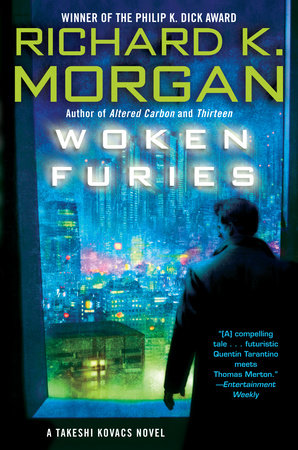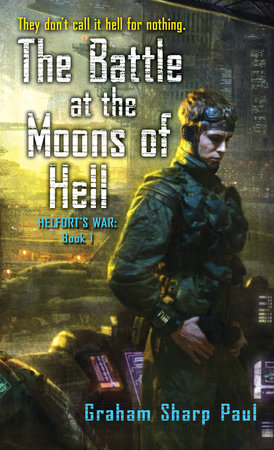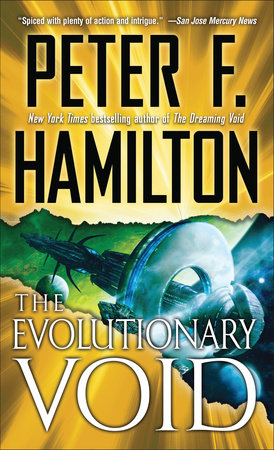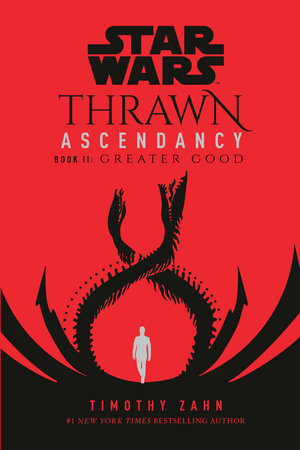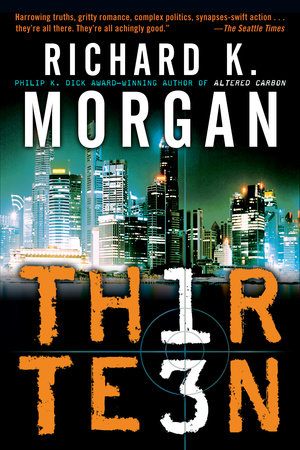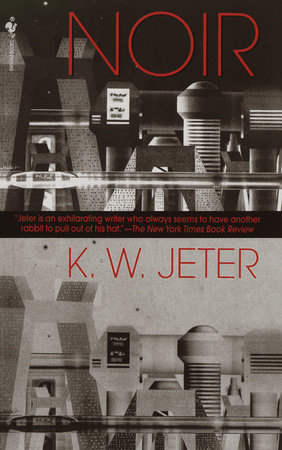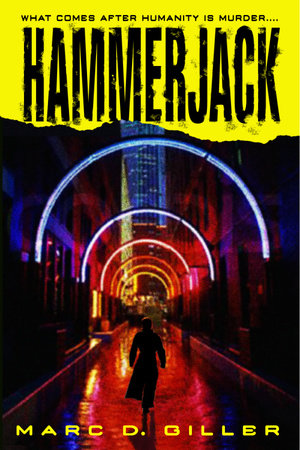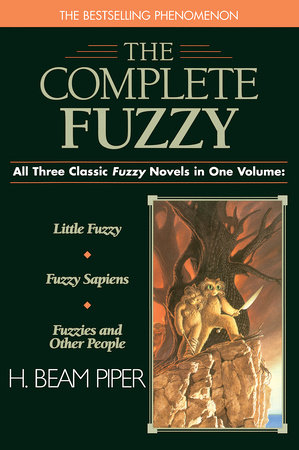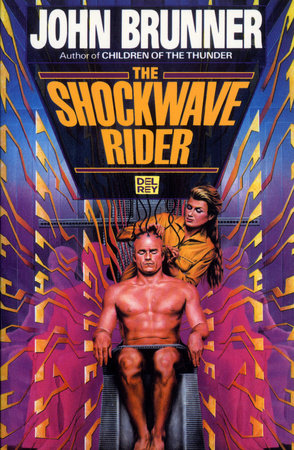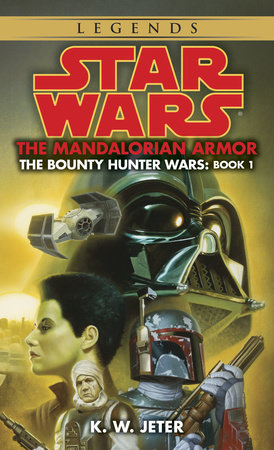Interview with Richard K. Morgan, author of Woken Furies
Question:Woken Furies is your third novel featuring ex-Envoy Takeshi Kovacs. For readers unfamiliar with the previous books in the series, Altered Carbon and Broken Angels, can you give us brief introduction to Kovacs and his distinctive future? Are the novels stand-alones, or should they be read in order?
Richard Morgan:The three Kovacs books are stand-alones, at least in theory. You should (if I’ve done my job properly!) be able to pick up any of them and read it without reference to the others. Having said that, there are references between the three and they do follow a rough chronological order, so it’s also fair to say that you will get a little more out of each book if you read them in order. Or, another way of looking at it, if you read them out of order, then the back-story references are going to seem that fraction more mysterious and/or intriguing. So there are benefits, however you do it.
As for the salients of Kovacs’s universe — well, they’re not so different to the salients of the world we live in today: unrestrained corporate power, corruption in high places, a radical gap between the haves and the have-nots. Mankind has settled a number of planets at interstellar distances, but all the old political and religious shit is still in place. Advanced data technology has made it possible to store back-up copies of your personality which can be retrieved from a cortical stack in your spine if you die and the stored personality, being digital data, can be uploaded into a machine-generated virtual environment, transmitted over distance like a phone call, or simply put back into a new body — but all this will depend on your wealth and status. If you have those things, or connections to them, you can trade in your body for a new one whenever you feel like it. If you go to jail, you lose your body, get filed away on a shelf and wake up in whatever bag of bones they’ve got to hand for you when you get out. Kovacs once served in this rather nightmarish world as an Envoy — part of an elite corps of political enforcers for the UN Protectorate. Basically, these guys are trained for transmission over interstellar distance, downloading into whatever suitable body is available at the far end and committing whatever murder or mayhem is required to maintain Earth’s grip on the colonies. It’s a very unpleasant job and Kovacs has quit — now he only commits murder and mayhem on his own behalf or for those close personal acquaintances he considers friends. So make friends with him — it’s safer that way.
Q:In Greek mythology, the Furies are goddesses of vengeance, pitiless persecutors of gods or humans who break established laws and cultural norms. Who are the “woken Furies” of this novel, and who are they pursuing? Is Kovacs their agent or their target?
RM:Well, that’s really up to the reader to decide. I’ve always been enamoured of implacability as a theme in my work, and it became quite clear to me early on in the writing of Woken Furies that the book was going to be about revenge and retribution at a variety of levels. But that’s a resonance rather than a specific plot element, and Fury here has all of the several meanings you’ll find in the dictionary. As with Broken Angels, Woken Furies can be taken as a reference to any number of different characters and themes within the book.
Q:Woken Furies is set on Harlan’s World, Kovacs’s home planet. Tell us about this world and its people. Is Kovacs an unusual product of its culture? And finally, is the name a tip of the hat to Harlan Ellison?
RM:Yes, the Harlan issue. In fact, this is rather embarrassing — when I wrote Altered Carbon, I was under the impression that I’d invented the name Harlan’s World. I’d never read anything by Ellison except a battered second hand-copy of Deathbird Stories I bought on holiday in Andalucia once. My closest conscious point of reference was a world in a Bob Shaw novel called Thornton’s Planet, and I was very pleased with myself for extrapolating. Then a friend showed up at a wedding I was attending and told me all about Ellison’s Medea project and the unofficial title his SF writer colleagues gave the world they’d created. Oops. Since then I’ve racked my brains to think where I heard the name, and I think I now have it. I used to subscribe to Omni back in the late seventies, and I think one of the Medea stories was published there — something called, if my memory serves me correctly, Why Dolphins Don’t Bite by Theodore Sturgeon. I remember reading that story back when I was about fourteen or fifteen, and my guess is that Harlan’s World comes up by name there. I must have tucked it away in the deeper recesses of my memory, something about the cadences of how it sounds maybeÉ.
Anyway — Harlan’s World as it exists in the Kovacs novels isn’t, I think, anything like the Medea envisaged by the Ellison group — it’s a smaller planet than Earth, with three moons, and it’s covered largely by water. Most of the available land comes in the form of hard-to-use craggy archipelagoes, in effect drowned mountain ranges, and so real estate is at a premium. Like all the worlds in the Protectorate, it was originally settled by the Martians and then abandoned hundreds of thousands of years ago, so it’s littered with ruins and ringed by a system of still operational Martian orbital platforms. The human settlers who inherited it, Kovacs’s ancestors that is, were a combination of a Japanese ruling class and an Eastern European labor force, though by the time Kovacs comes along, there’s been a lot of interbreeding and he has distinctly mixed ancestry. Kovacs isn’t that unusual in his initial background — he’s pretty much a typical product of slum conditions and low grade criminality on a southern landmass called Kossuth, translated at a young age into the local military. But his time in the Envoy Corps has changed all of that. The Envoy conditioning is so thorough that it’s questionable if what emerges afterwards is a wholly human being in any normal sense of the word.
Q:I was pleasantly surprised to see you mention Kem Nunn’s surf-noir classic, Tapping the Source, in your acknowledgments A number of speculative fiction writers have cited this novel as an influence, even though it’s not speculative fiction itself. Why was it helpful to you, and why do you think it has had an impact within the genre?
RM:I guess the basic reason is that it’s a fine novel, and it gets to the heart of the human concerns we’re all involved in as writers — ecstasy and pain, loss and learning, family, and friendship, life and death. At the time, I was on the look-out for anything specific about surfing, because I knew that a surf community was going to play a part in the story I was telling, and I needed some background. But once I picked up the book, it was the opening lines that grabbed me, and they take place a few hundred klicks inland in the back yard of a gas station. There’s not a wave in sight, but Nunn conveys that first scene so powerfully that you can almost feel the heat and smell the engine oil — at that point I would have bought the book anyway, regardless of subject matter. Later on, though, I got what I was looking for — Nunn cuts right to the heart of the way the sleazy and sublime rub up against each other in surf culture. These were things I’d run into on and off in my travels anyway — I’d met quite a few surfers here and there – but TTS manages to distil the mix down to its salients and express them with a rare, unaffected eloquence that almost aches.
Q:Are you a surfer, or did you become one in the course of writing this book?
RM:No! Those guys are fucking crazy. I’m entirely too fond of living to take the risks inherent in serious surfing. Also, I don’t live even remotely close enough to any water warm enough to practice in.
Q:One reason I asked earlier whether the Kovacs novels should be read in order is that you seem to be methodically unpacking elements of your back-story in each one. The impression is of an evolving tale that transcends the individual books, as threads of your future history come together. In Woken Furies, it’s not only details about Harlan’s World, and Kovacs’s past there, but also the character of the legendary revolutionary Quellcrist Falconer, whose precepts are quoted liberally in the previous books. First of all, are you following a larger pattern or plan in your novels?
RM:Not really. I tend to write as the inspiration takes me, and that’s a close-to-random thing. It depends as much as anything on fragmentary images, little bits of scenes and even the cadences of certain words and phrases. But obviously, when you’re writing about the same character,r you acquire an increasing quantity of detail with each novel, and that can’t help but inform what you do. Woken Furies, I think, is the Kovacs book that’s most about Kovacs, because over the course of the two previous novels I became increasingly fascinated by the question of who exactly he is and where, psychologically, experientially, he’s from.
Q:And that gets us into Falconer and her ideology of Quellism, which have shaped Kovacs almost as much as his Envoy conditioning, or so it often seems. Are they modeled on anyone in particular?
RM:I think Quellism is really the sum total of my own exasperation with both the inherent self-serving corruption of right-wing politics and the back-biting, up-its-own-arse self-absorption of the left. Quell herself is driven by fury at the oppression that’s endemic on Harlan’s World (and which I think most of us would recognize only too well here on 21st century Earth). But at the same time she’s too smart and individualistic to buy into the standard revolutionary rhetoric of her comrades in the struggle. Her political antecedents are anarchist thinkers like Proudhon and Bakunin, who provide the critique of state power, whether exercised by the right or the left. But she doesn’t have the ludicrous, lethal innocence that goes with anarchist belief, and her practical post-revolutionary ideas are grounded in a clear understanding of human foibles, checks and balances, and necessary social systems. Ultimately her political vision amounts to an engaged hi-tech social democracy (which in itself is something of a radical concept in Kovacs’s world).
Q:Martian technology and the mystery of the vanished Martians play an increasing part in each novel, both in the world-building and in the plots themselves. Without giving away any of the surprises waiting in Woken Furies, what can you tell us about these enigmatic aliens and their presence, or absence, on Harlan’s World?
RM:Very little, actually. The Martians came through this region of space a very long time ago and then disappeared, for reasons that aren’t clear, round about the time humans were learning to cave each other’s skulls in with flints. They left a lot of stuff lying around, but most of it isn’t well understood. They had wings and looked not dissimilar to very big bats. Their technology was very advanced. They left a legacy of about three dozen worlds, habitable to themselves and humans, and quite possibly terra-formed for that purpose. Beyond those basics, the scientists are still squabbling about detail.
Q:Who is responsible for the evolving weapons systems that Sylvie and the other deComs hunt down and destroy? How did they get there?
RM:Oh, that was us. There was an intense period of global conflict just after Harlan’s World was settled by humans, and all sides were quite happy to deploy automated weapon systems at the time. Just a shame they didn’t give any thought to how they were going to decommission all the hardware when the fighting was over. Plus ca changeÉ.
Q:You mentioned in our last interview that, partly as a result of his Envoy conditioning, Kovacs changes depending on his environment and circumstances; its not just his sleeves that vary, but which elements of his personality come to the fore. Thus, we saw one Kovacs in the relatively civilized (though still deadly) environment of Altered Carbon, and a very different one in the war zone of Broken Angels. What’s the Kovacs of Harlan’s World like?
RM:Woken Furies takes place about thirty years after Broken Angels, and Kovacs is back from the war. He’s brought his murderous tendencies back with him, but they’re a little more tamped down, in keeping with a society that’s nominally at peace. In that sense, Kovacs here bears more resemblance to the man he was in Altered Carbon. But the problem is that he’s gone pretty much off the rails. When we meet him, he’s pursuing a vendetta of unrelieved savagery, with trademark competence, of course — murder and mayehem is what he’s trained to do – but it’s questionable whether he’s quite sane anymore. This is definitely Kovacs at his most frightening.
Q:From novel to novel, and within the novels too, you show technology evolving and advancing. Yet Envoy conditioning doesn’t seem to change. Are there improvements to this conditioning that would make someone like Kovacs, long resigned from the Corps, an outmoded model? And wouldn’t there be advances in other technologies that would compensate for Envoy-instilled advantages, making non-Envoys their equals or superiors?
RM:In fact, Envoy conditioning does undergo constant refinement, but it’s all small-scale stuff. In the Protectorate’s eyes, no major modifications are necessary or possible. An Envoy is a bit like a bicycle or a pistol — the basic design is pretty near perfect; you can always fine tune, build out of better materials, but if you make too many changes the thing ceases to be what it is. Think of soldiering itself. The difference between a Greek hoplite or a Roman legionary and a modern infantryman isn’t that great — they just have better weapons to do their killing with. You could teach a soldier from ancient Greece or Rome to use a machine pistol or a grenade easily enough. The biggest problem you’d have with these time-displaced warriors wouldn’t be the technology, it would be trying to get them to understand the issues they were being asked to fight over. The point of Envoy conditioning is flexibility of mind and speed of practical response. New biotech will bring better bodies for these guys to drive, but the mind behind it is the same. There isn’t any kind of compensatory technology that you can deploy against the Envoys, because the technology isn’t the point. Any military machine is only as dangerous as the mind that animates it.
Q:One of the plot threads in Woken Furies is Kovacs’s vendetta against a misogynistic religion called the New Revelation. I got the feeling that you had strong personal feelings about the contemporary Earthly religions that are its models.
RM:Yeah, I have approximately zero time for religion of any sort — it continues to astound me that at the beginning of the twenty first century, we can still be grubbing about on our knees like a bunch of medieval peasants. But within the larger set of that idiocy, I’m driven to especial fury by the misogyny inherent in the great patriarchal religions. As far as I’m concerned, any belief system that assigns a separate and subordinate role to women in society is, by definition, uncivilized. Anyone who advocates it is, by definition, a barbarian.
Q:Why is double-sleeving–the practice of putting a human consciousness into more than one sleeve at a time–illegal? Wouldn’t the Protectorate, at least, employ this technology? Since all Envoys are not created equal, wouldn’t it be to their benefit to have multiple copies of their best agents?
RM:Well, obviously that sort of thing does go on. But it’s a forbidden practice as far as the common herd are concerned. You might see an analogy in the contemporary use of amphetamines, which is strictly illegal for US citizens – unless you happen to be a pilot in charge of an aircraft racked with high-impact destructive weaponry. Hmmm, what’s wrong with this picture? Or for that matter you could consider incest, which with the arrival of effective contraception, pre-natal screening, and a more open society, simply doesn’t rate as the great horror we all still see it as. It’s still illegal, though. Societies tend, rightly or wrongly, to criminalize the things that scare them. And double-sleeving is very scary because it cuts at the fundamental roots of individual human identity.
Q:How is the movie of Altered Carbon progressing?
RM:Ha! I wish I knew. I’m told that there is still a lot of interest in the project, but in Hollywood that could mean anything. The film option expires (again) in November, at which point Warner Brothers has to make up its mind one way or the other and either buy, let go, or re-negotiate. Watch this space!
Q:I had the privilege of reviewing your last novel, Market Forces. In my review, I said it was a pity that Stanley Kubrick was dead, because he would have been the perfect director for it. Now I see that the novel has been sold to Warner Bros. Has there been an announcement of a director yet? And if not, who would you like to see direct this novel?
RM:Thank you. No director as yet. There are a number of people in the field I admire who I’d be delighted to see take it on — Kathryn Bigelow, Michael Mann, Antoine Fuqua, Paul Verhoeven, Guillermo del Toro, Jonathan Glazer — but I try not to think about it too much because the amount of control I have is zero. I’m not convinced by Kubrick, though — I think, with hindsight, his work looks increasingly sterile. I don’t think he liked human beings very much.
Q:Are you going to be alternating between Kovacs and non-Kovacs novels from now on? Do you see the Kovacs series as being open-ended, or do you have a ending in mind?
RM:I don’t currently have any intention to write any more Kovacs novels. I think I’ve said about as much about him as I usefully can, and I don’t really see where I would take him from here on. And I’m very wary of taking the pitcher to the well one too many times. In my experience, authors who write series characters inevitably end up wearing them thin, and I don’t want to make that mistake. I’d rather quit while I’m ahead and leave Kovacs while he’s still going strong. At the same time, I wouldn’t categorically say never again, because who knows? A fan I spoke to last time I was in the US, a guy called Terry Hertzler, who’s also a writer and poet in his own right, just smiled when I told him Woken Furies was probably going to be the last Kovacs book. “That’s okay,” he said. “In ten years time, you’ll be a different man and so will Kovacs. Maybe then you’ll think of something fresh to say about him.” Well, who knows, maybe I will. But for now, where Kovacs is concerned, Less is definitely going to have to be More.
Q:What are you working on now?
RM:I’m currently writing a near(ish) future noir thriller called, appropriately enough, Black Man. It’s set about a hundred years from now and deals with the social consequences of genetic engineering, and the global impact of a concerted effort to colonize Mars. After that, I’m planning to write some fantasy. I’ve had it in mind for a while now to see if the salients of the noir form will transfer from SF to Sword and Sorcery, and my London publishers have been kind enough to come along for the ride. It’s going to be a considerable change from anything I’ve done so far, but that’s the trick, I think. Got to keep moving, got to keep trying to do something fresh — otherwise, what’s the point?
